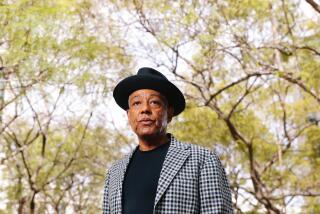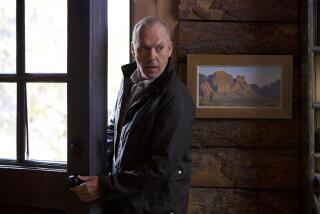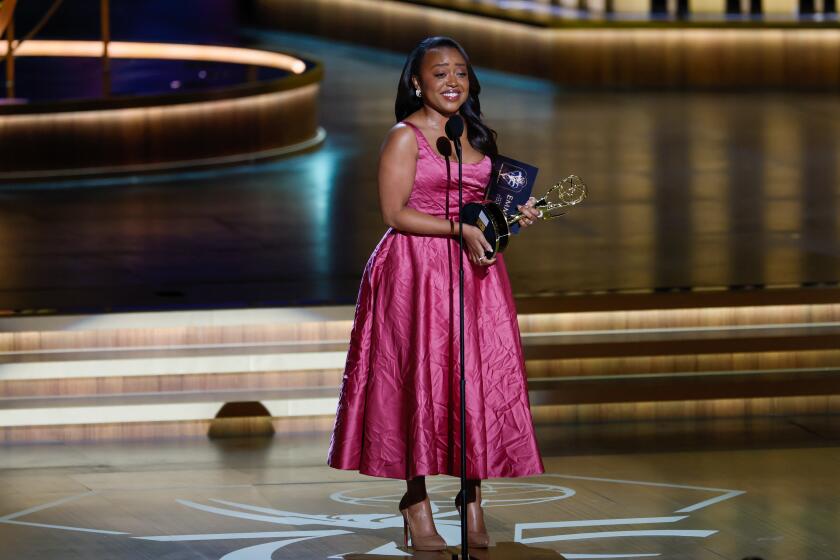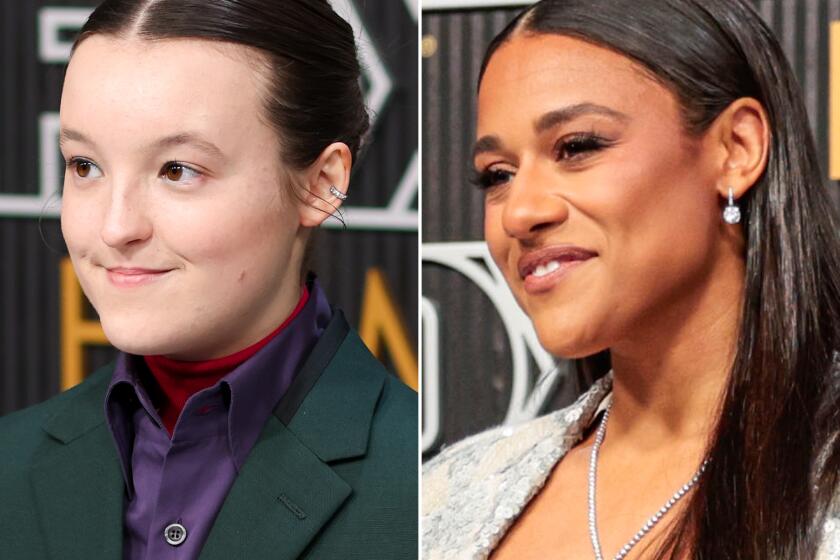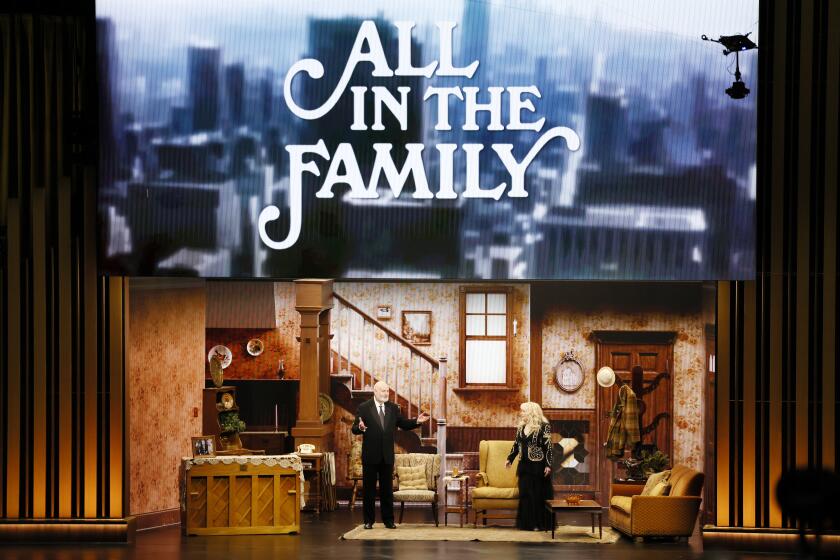Bryan Cranston happily shares his on-screen pain to make us feel better
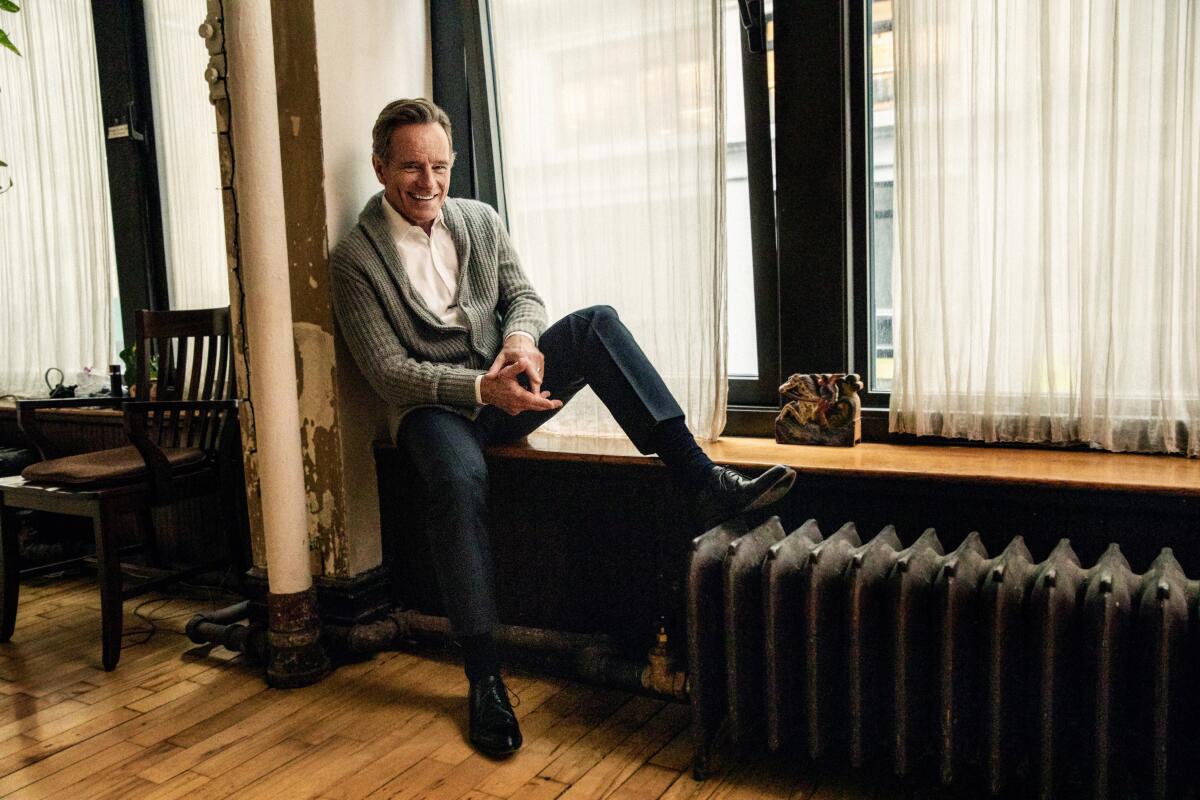
A powerful gangster’s son takes his new motorcycle for a joyride. A judge’s son accidentally hits him, then leaves the scene. That’s the setup to Showtime’s compelling dramatic-thriller series “Your Honor” written and produced by Peter Moffat and executive produced by Bryan Cranston, who also stars as the beleaguered Judge Michael Desiato.
“At that moment, the parental side of his character rose to the surface and pushed the judicial side, the responsible side from the law’s standpoint, it pushed it into second position and it made it very clear to him, in that impulsive moment, what he needs to do to save the life of his child,” Cranston says of the pivotal scene that kick-starts the story.
To prepare for his role, Cranston spent two weeks attending proceedings in just about every courtroom in New Orleans, including the one that appears in the show. What he found among judges were various personality types ranging from discrete to histrionic.
“There was the excellent referee kind of judge that was almost invisible, that you don’t really notice until they make a call. There is the authoritative or theater-like judge who wants to hand down advice and have everybody understand his or her legal opinions and be revered and respected. It’s a potpourri,” he laughs, describing how he borrowed and interchanged aspects of all of them to conjure his Judge Desiato.
Cranston has been directing since his days as affable middle-class dad Hal Wilkerson on “Malcolm in the Middle.” He’s directed episodes of “The Office” as well as “Breaking Bad” and now the 10th and climactic episode of “Your Honor,” the script of which put strenuous emotional demands on all principal cast members, including Margo Martindale, Carmen Ejogo and Michael Stuhlbarg.
“I develop a switch,” he says about wearing his directing hat in the moments leading up to a take [of himself], then turning on a dime into the character after yelling “action.” When directing himself, he relies on his fellow storytellers for guidance. “It’s an imperfect art form, and we’re kind of hunting when we do it. And sometimes you bag the game, and sometimes you miss. Planning and real good scripts help you to not come home empty-handed.”
Critics are united in their praise of the show’s cast, but many have noted similarities between “Breaking Bad’s” Walter White — the character Cranston is best known for — and Judge Desiato. Each begins as a law-abiding citizen, only to end by subverting and dodging authorities every step of the way.
“If someone says, ‘Did you think about the difference between Michael Desiato and Walter White?’ Well, yes, that’s always a part of my decision making, to see how distinctive the characters can be,” he says, noting that he never reads his critics. “The difference is Walter White was methodical and strategic. He knew what he needed, and he went after it. He was proactive. Michael Desiato was reactive. He was not going to break the law until the law seemed to be too penetrable and vulnerable for [his] son’s safety. So he made the impulsive decision.”
Early in his career, Cranston turned up on such classic sitcoms as “Seinfeld,” where he had the recurring role as dentist Tim Whatley. He was Emmy-nominated for “Malcolm in the Middle,” but “Breaking Bad” catapulted him to fame, winning him several Emmys in its five-year run. Subsequent stage work has landed him two Tony Awards, for his portrayal of President Lyndon B. Johnson in “All the Way,” and suicidal anchorman Howard Beale in 2018’s “Network,” for which he also took an Olivier Award.
The Hollywood Foreign Press Assn. has nominated him eight times (including one for “Your Honor”), and awarded him a Golden Globe in 2014 for “Breaking Bad.” No word yet on whether he might return the award as some, like Tom Cruise, have, but he did have some choice words for the institution that all but imploded earlier this year following the Los Angeles Times’ investigation of alleged ethical and financial improprieties within the organization.
“The old way of doing things is no longer sustainable. The ills of misogyny and the ills of white supremacy and white male dominance have to go,” he says, his voice rising. “I, as an older white man, fully understand and accept that I have enjoyed white privilege in my life. It’s time for me to brake and step aside to make room for other voices to emerge.”
As a young person, Cranston enjoyed the usual suburban L.A. upbringing, even riding horses at Spahn Ranch, where he had a ghoulish encounter one day. “We saw this trail of horses, and in the middle was this short guy, pitch-back hair, black eyes, just wiped-out high, undulating with the movement of the horse. I could have leaned over and touched his horse, that’s how close I was. You could not take your eyes off him. And his eyes were as big as saucers. And that was it. And then a year and a half later, the murders happen — Spahn Ranch, horse riding, Charles Manson, and all of a sudden I’m going, ‘What?!!!”
As for the success of “Your Honor,” which Cranston was told is Showtime’s highest rated series to date, he attributes it to his collaborators as well as the pandemic. “People are seeking out other people’s pain to say, ‘At least I’m not that guy!’” he laughs. “I was happy to see that a lot of people watched it and were entertained.”
More to Read
From the Oscars to the Emmys.
Get the Envelope newsletter for exclusive awards season coverage, behind-the-scenes stories from the Envelope podcast and columnist Glenn Whipp’s must-read analysis.
You may occasionally receive promotional content from the Los Angeles Times.

